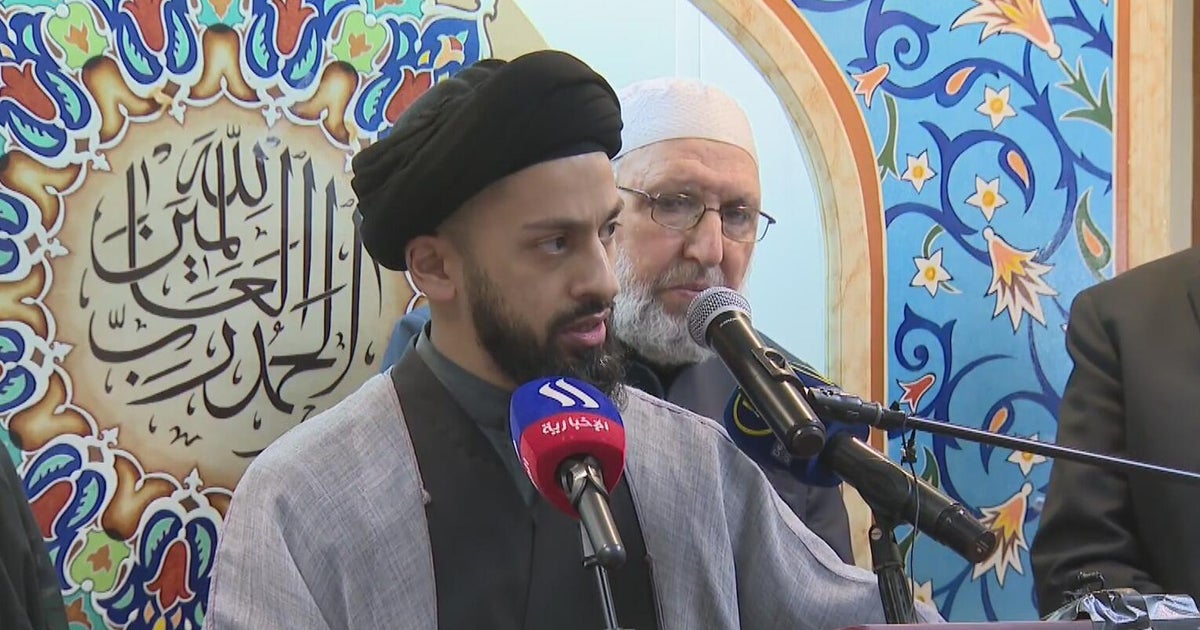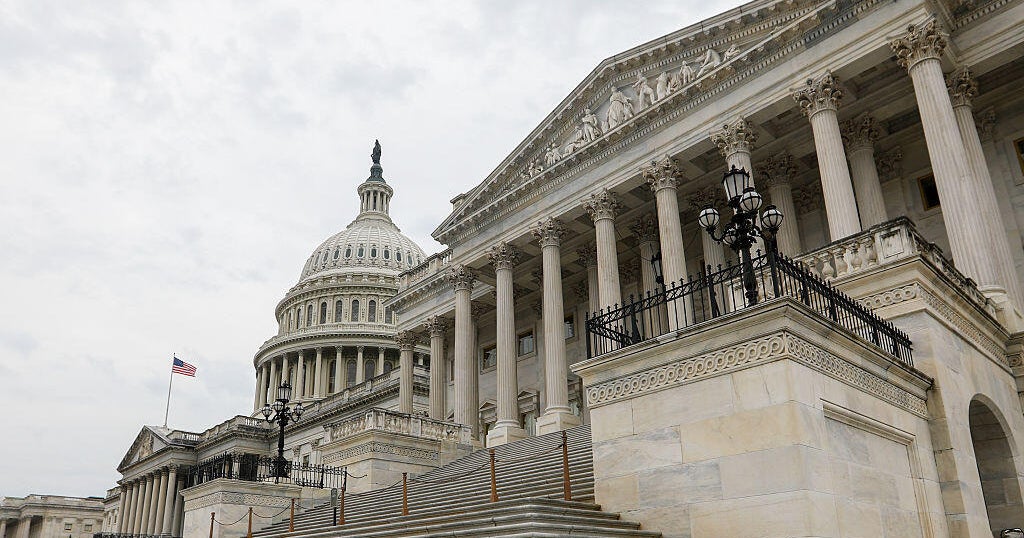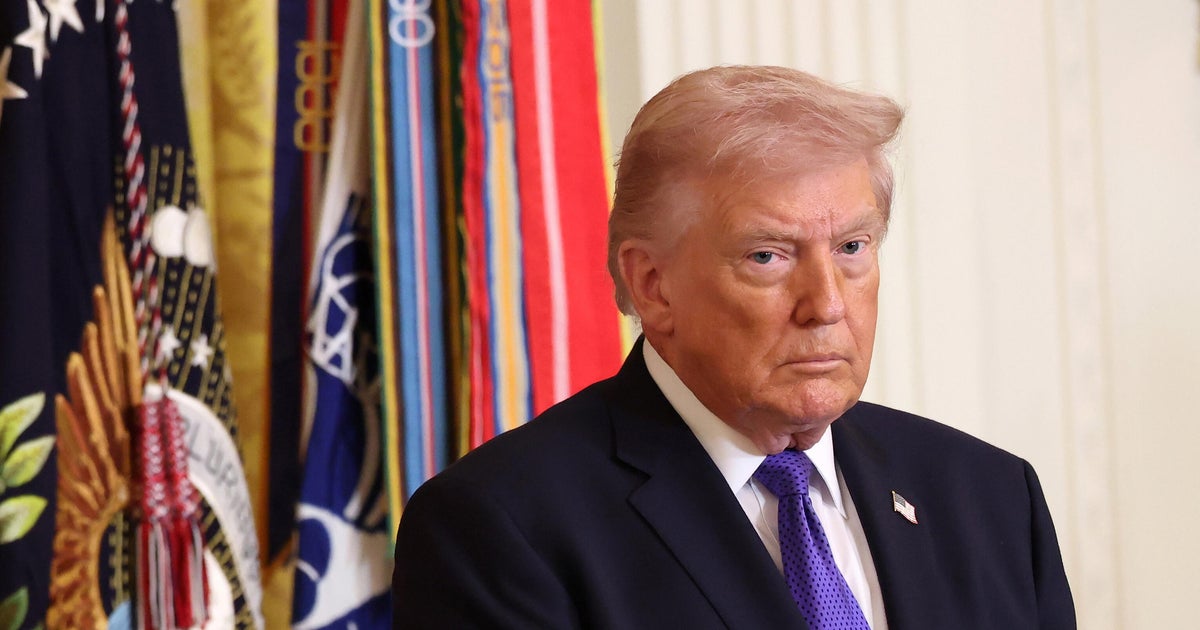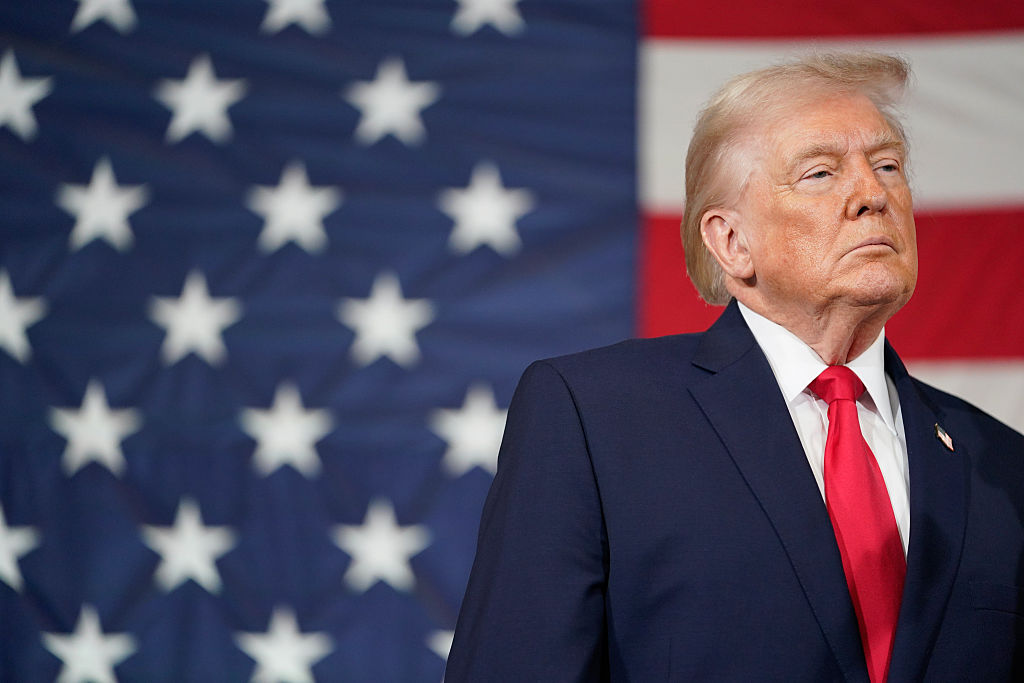Transcript: Secretary of State Mike Pompeo on "Face the Nation," May 13, 2018
Secretary of State Mike Pompeo returned from a trip to North Korea this week with three American citizens who had been held by the North Korean government. Their release comes ahead of the highly anticipated summit between President Trump and North Korean leader Kim Jong Un, with Pompeo working to set the groundwork for talks.
Pompeo joined us to discuss his trip to North Korea, the administration's decision to pull the U.S. out of the Iran nuclear deal and more.
The following is a transcript of the interview with Pompeo that aired Sunday, May 13, 2018, on "Face the Nation."
MARGARET BRENNAN: We want to welcome Secretary of State Mike Pompeo. Our first guest here in the new "Face the Nation" studio. Mr. Secretary thank you for joining us.
SECRETARY OF STATE MIKE POMPEO: It's great to be with you. Happy Mother's Day. It's a beautiful studio.
MARGARET BRENNAN: It's been an extraordinary week for you on many fronts. I want to ask you about North Korea. They have in the past pledged to dismantle nuclear sites before. They're saying they're going to do it again. Is this latest pledge a theatrical gesture or is it significant?
SEC. POMPEO: Well my trip was designed to lay the groundwork. To prepare for the president's meeting with Chairman Kim on June 12th now just 30 days away. We've seen this happen before. We have our eyes wide open with respect to the fact that the North Koreans have not proved worthy of their promises, but we're hopeful that this will be different. That we won't do the traditional model where they do something, and we give them a bunch of money, and then both sides walk away. We're hoping this will be bigger, different, faster. Our ask is complete and total denuclearization of North Korea. And it is the president's intention to achieve that. As he has said, we'll see if that works, but we're setting the conditions for a successful meeting between the two leaders.
MARGARET BRENNAN: Have you defined denuclearization?
SEC. POMPEO: Yeah. Total. Full. Complete.
MARGARET BRENNAN: That means all dismantling -
SEC. POMPEO: Yes
MARGARET BRENNAN: Stopping computer modeling -
SEC. POMPEO: Yeah
MARGARET BRENNAN: Getting rid of the centrifuges, stopping all enrichment, getting inspectors on the ground.
SEC. POMPEO: Yes ma'am. The same deal we should have done with Iran.
MARGARET BRENNAN: So for you - you've talked about making it worth North Koreans while financially if they follow through. John Bolton said today on another network that no one should look to the U.S. for economic aid including North Korea.
SEC. POMPEO: That's right.
MARGARET BRENNAN: How do you reconcile those two things. They seem to be in contrast.
SEC. POMPEO: Oh no ma'am. Very very consistent. What what Chairman Kim will get from America is our finest. Our entrepreneurs. Our risk takers. Our capital providers. Not our taxpayers. They'll get people -
MARGARET BRENNAN: Private capital?
SEC. POMPEO: They will get private capital that comes in. North Korea is desperately in need of energy support - electricity for their people. They are in great need of agricultural equipment and technology. The finest from the Midwest that I come from. We can deliver that. And as I said earlier this week, we can create conditions for real economic prosperity for the North Korean people that will rival that of the South, and that is our expectation. It won't be U.S. taxpayers. It will be American know-how, knowledge entrepreneurs, and risk takers working alongside the North Korean people to create a robust economy.
MARGARET BRENNAN: That sounds like sanctions relief.
SEC. POMPEO: No -
MARGARET BRENNAN: To make it possible for a company to invest directly in North Korea-
SEC. POMPEO: Ma'am if ma'am if we get if we get denuclearization, of course there will be sanctions relief. Certainly. There will be more than that. There'll be - the president has a commitment and he will make this commitment to Chairman Kim I am confident that says if you do the things we need to do so that America is no longer held at risk by your nuclear weapons arsenal and that you get rid of your CBW program and missiles that that threaten the world, we will ensure that your people have the opportunity for the greatness that I know Chairman Kim wants them to have.
MARGARET BRENNAN: Not many secretaries of state get to say they brought three Americans home in their second week on the job or have even been to North Korea twice in six weeks time. But I'm wondering in your interactions with Kim because you've had them directly - have you assured him that the U.S. isn't trying to oust him from power?
SEC. POMPEO: I have told him that what President Trump wants is to see the North Korean regime get rid of its nuclear weapons program in completely and in totality and in exchange for that, we are prepared to ensure that the North Korean people get the opportunity that they so richly deserve. It's pretty straightforward. And I said early this week I think in that sense Chairman Kim shares that same objective. I I think he understands that President Trump has put an enormous pressure campaign in place with the aim of achieving a good outcome for North Korea and its people. That's our objective. That's the American goal that President Trump set forward.
MARGARET BRENNAN: So the U.S. no longer believes that Kim Jong-Un is holding onto these weapons to secure his place in power. In other words you are saying no regime change?
SEC. POMPEO: Only time will tell how these negotiations will proceed the president uses the language says we'll see. There is still a lot of work to do. The American leadership under President Trump has its eyes wide open. It could be that we won't be successful. It's possible. We acknowledge that. We've we've watched this fail before, but the model that has been employed here is fundamentally different, and we are hopeful that we will get a fundamentally different outcome.
MARGARET BRENNAN: What will this summit in Singapore look like are you walking into the room with President Trump to sit across from Kim Jong-Un.
SEC POMPEO: I don't know.
MARGARET BRENNAN: You don't know yet?
SEC. POMPEO: I don't know. I don't know. We're working on the details the the the actual blocking and tackling at the meeting. We have been working on them for weeks. We'll have teams working on them in the days and weeks ahead. We've got now some 30 days I guess it is, and there will be a great deal of work done between our two countries between now and then to finally set the stage for what we hope will be a very successful visit in Singapore between our two leaders.
MARGARET BRENNAN: So you are still figuring out the protocol. But you've spent the most time with Kim Jong-un.
SECRETARY POMPEO: I have.
MARGARET BRENNAN: What has struck you about him?
SEC. POMPEO: What struck me about him. He is very knowledgeable in the sense of he knows the files. He's very capable of engaging in complex set of discussions. When I ask him a a question about something that's a little off he answers it. There's no notecards. It is Chairman Kim in this case interacting with me directly having a robust discussion about what the outlines of a successful negotiation between our two countries might ultimately be.
MARGARET BRENNAN: You brought those three Americans home from North Korea. There are still at least four Americans being held in Iran. Their families are concerned that tearing up this diplomacy exiting the nuclear deal puts their loved ones at risk. What can you tell them?
SEC. POMPEO: Two things. First, everyone should know that this administration is intent on bringing home every American who is held anywhere in the world. We've got Pastor Brunson in Turkey that we desperately need to get back. We have others held in Iran and in Syria. We we're working diligently to get each of them back. With respect to whether the the actions of this past week with respect to the JCPOA increased anyone's risk, I think that's ludicrous. The Iranian bad behavior increased.
MARGARET BRENNAN: Do you-
SEC. POMPEO: It only increased during the time when the JCPOA.
MARGARET BRENNAN: Are you willing to carry out a prisoner swap with Iran still?
SEC. POMPEO: I can't answer that question. We didn't change exchange anything for these North Korean detainees. They came back because Chairman Kim thought it was in his best interest to do so and we're thankful for that. We are hopeful that Mr. Rouhani, who fancies himself a westerner, would undertake to release the Iranian detainees as well. He talks about the fact that he wants European business there the least he could do would be to return all of the people that his country, Mr. Rouhani's country, has hold of.
MARGARET BRENNAN: Fundamentally, a number of our European allies - as you know I'm sure you've had some difficult conversations in the past few days - have been frustrated that the U.S. cut short the diplomacy in their view. They said in a conversation with you last Friday you assured them that they had they were close to the side deal to address the things President Trump was worried about. Why not try it? Why not finish that? Why did the president cut that off?
SEC. POMPEO: Oh Margaret, we did. We did try. The president set out a set of objectives. He tasked me in my first couple weeks to work with Europeans to try and do it although the work had been ongoing before I arrived at the State Department, and at no time were we able to reach an agreement. The Europeans simply wouldn't exceed to the requirements to fix the deal. And so they had some 90 days to do so. We -
MARGARET BRENNAN: They thought they had another five days too to get there on the sunset clause.
SEC. POMPEO: Margaret, we had 90 days to work at it. And you should know we will continue to work. President Trump and President Macron have both said we want to get a deal that's right. A bigger deal. We will be hard at that in the weeks ahead. I hope to be a central part of achieving that. It would be a wonderful thing if we could get the Europeans to do this. But Margaret, I do want to add this. Fundamentally, what's happened during the time of the JCPOA. Was that the Iranian wealth creation fueled their malign behavior. The money that they had to go and launch missiles into Riyadh and Israel putting Americans at risk was provided by the economic benefits they got from the JCPOA. President Trump wants to starve them of that wealth.
MARGARET BRENNAN: So, fundamentally though are you trying to negotiate a new nuclear deal or are you trying to put together a coalition to defeat Iran?
SEC. POMPEO: We're going to put together a coalition that pushes back against not only Iran's nuclear program, which by the way Margaret they still deny. No Iranian leader has admitted they had a weapons program and the facts are now public that they did. They ought to at least be honest about that. But it's not going to just be the nuclear file. It will be their missile program. It will be their effort to build Hezbollah it will be their threats against Israel will be the work that they're doing in Yemen to launch missiles into Saudi Arabia for goodness sakes. This is the activity that the Iranian regime has undertaken during the JCPOA. We're going to make a shift. We're going to deny them the benefit of the economic wealth that has been created and put real pressure so that they'll stop the full scale of the of the sponsorship of terrorism with which they have been engaged in these past years.
MARGARET BRENNAN: Mr. Secretary thank you for coming on Face The Nation.
SEC. POMPEO: Thank you very much, Margaret. Happy Mother's Day to you.
MARGARET BRENNAN: Thank you. We'll be back in one minute with Senator Lindsey Graham.



